ANTHROPOCENE ROADMAP
SUR LES CHEMINS DE L’ANTHROPOCÈNE
( ENG )
Between 2003 and 2013 I travelled far and wide, witnessing first hand a small fragment of this specific era we, as humans, have come to call the Anthropocene.
Born in the Americas, I witnessed the present first hand. Living in Europe, while visiting North Africa and the middle east, taught me about the past, the roots of it all. Travelling to Asia showed me the possible futures.
From the camps of the Occupy movement to the resorts of the Caribbeans, from nomadism to sedentarity, this is my travel journal. This is what I gleaned from it all, an Anthropocene road map of some sorts...
Born in the Americas, I witnessed the present first hand. Living in Europe, while visiting North Africa and the middle east, taught me about the past, the roots of it all. Travelling to Asia showed me the possible futures.
From the camps of the Occupy movement to the resorts of the Caribbeans, from nomadism to sedentarity, this is my travel journal. This is what I gleaned from it all, an Anthropocene road map of some sorts...
( FR )
Entre 2003 et 2013 je parcouru le monde de long en large, le témoin prévilégier de cette époque spécifique que nous, les humains, avons nommé l’Anthropocène.
Né en Amérique, j’étais aux premières loges du présent. Vivre en Europe, tout en visitant le Nord de l’Afrique et le Moyen Orient, me fit prendre conscience du passé, de nos racines. Voyager en Asie m’ouvra les yeux sur les futures possibles.
Des campements du mouvement des Indignés aux plages des Caraïbes, du nomadisme à la sédentarité, ceci est mon journal de voyage. Voici ce que j’en ai tiré, un espèce de carnet de route de l’Anthropocène...
Né en Amérique, j’étais aux premières loges du présent. Vivre en Europe, tout en visitant le Nord de l’Afrique et le Moyen Orient, me fit prendre conscience du passé, de nos racines. Voyager en Asie m’ouvra les yeux sur les futures possibles.
Des campements du mouvement des Indignés aux plages des Caraïbes, du nomadisme à la sédentarité, ceci est mon journal de voyage. Voici ce que j’en ai tiré, un espèce de carnet de route de l’Anthropocène...
An·thro·po·cene (ăn′thrə-pə-sēn′)
n.
The period of time during which human activities are thought to have had a significant impact on the global environment, regarded as having begun sometime between eight thousand years ago, with the spread of agriculture, and two hundred years ago, with the advent of industrialization.
n.
The period of time during which human activities are thought to have had a significant impact on the global environment, regarded as having begun sometime between eight thousand years ago, with the spread of agriculture, and two hundred years ago, with the advent of industrialization.
An·thro·po·cène
(nom masculin)
(nom masculin)
Période actuelle durant laquelle l’activité humaine a de fortes répercussions sur la biosphère. Son début coïncide, selon les interprétations, avec le début de l’agriculture, il y a huit mille ans ou, il y a deux cents ans, avec l’avènement de l’industrialisation.
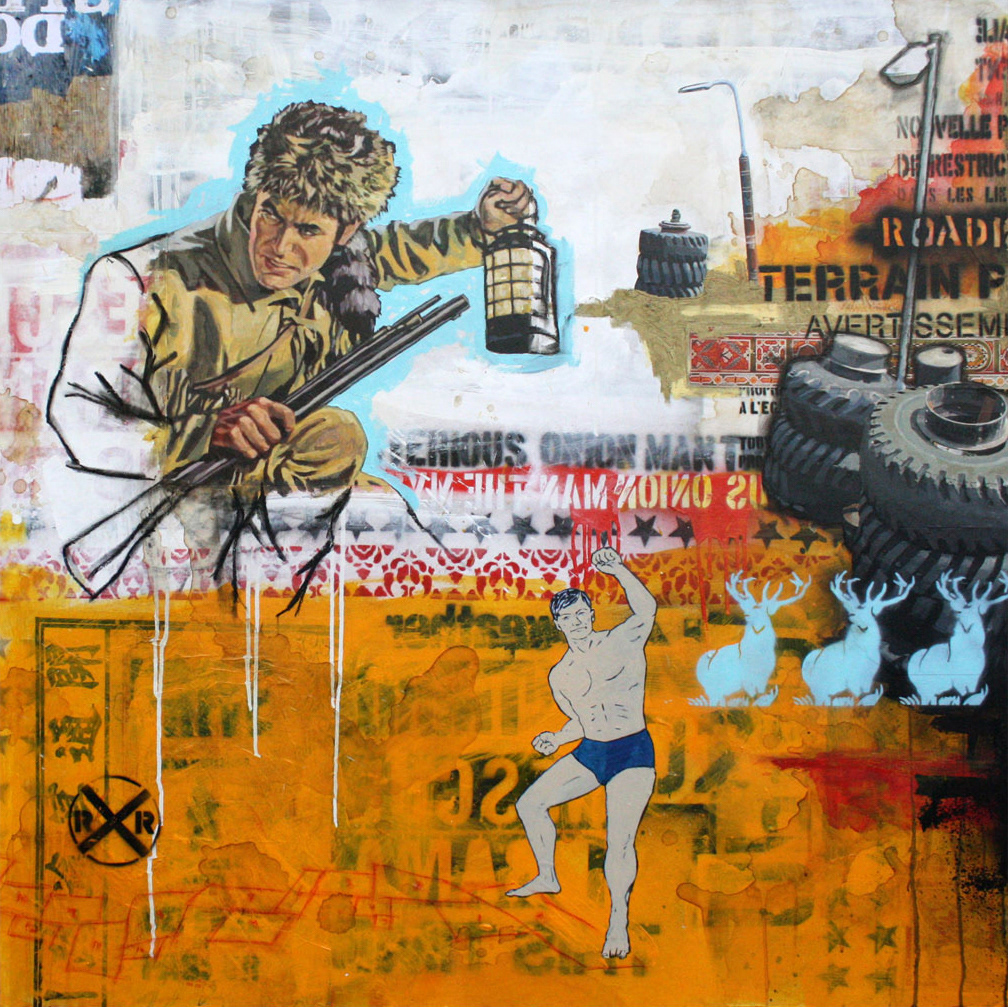
The Anthropocene is essentially the epoch of the sedentary dogma; the point in time at which humans metamorphosed from hunter-gatherers to farmer-villagers and then to worker-consumers. It is the age of materialism and the domestication of humans by humans. Turning our back to nature, the need for security is prevalent. A hyper-sedentary world based on hollow and superficial movement.
+ + + + + + + + + + + +
L’anthropocène est essentiellement l’époque du dogme sédentaire; le moment ou l’humain s’est métamorphosé de chasseur-cueilleur à agriculteur-villageois puis à travailleur-consommateur. C’est l'époque du matérialisme et de la domestication de l'humain par l’humain. Dos à la nature, la quête de sécurité est maître. Une époque hypersédentaire de déplacements vides et superficiels.
Our era is that of mobility; compulsory or voluntary migrations, virtual and physical displacements. An hyperactive existence of repeated ruptures; patching up fragments of shattered memories like rootless vagrants; seeking guidance in the midst of a thick cloud of information; excessive stimuli and multitasking; afflicted by constant transposition between territories, media, relationships and events, all of which are ephemeral and evasive in this "overconsumptive" ritualistic maelstrom. We alternate between states in a fraction of a second, clinging to the few bits of authenticity we come across, without ever taking root.
Notre époque est celle de la mobilité; migrations forcées ou volontaires, déplacements virtuels et physiques. Une vie hyperactive de ruptures répétées, à rapiécer les fragments de souvenirs éclatés; les déracinés d’une transposition constante entre territoires, médias, interfaces, relations et évènements; stimuli excessifs, tous éphémères et insaisissables dans un rituel «surconsommatoire». Nous alternons d’état en une fraction de seconde, s'agrippant aux quelques parcelles d’authenticité croisées en cours de route, sans jamais s’y enraciner.
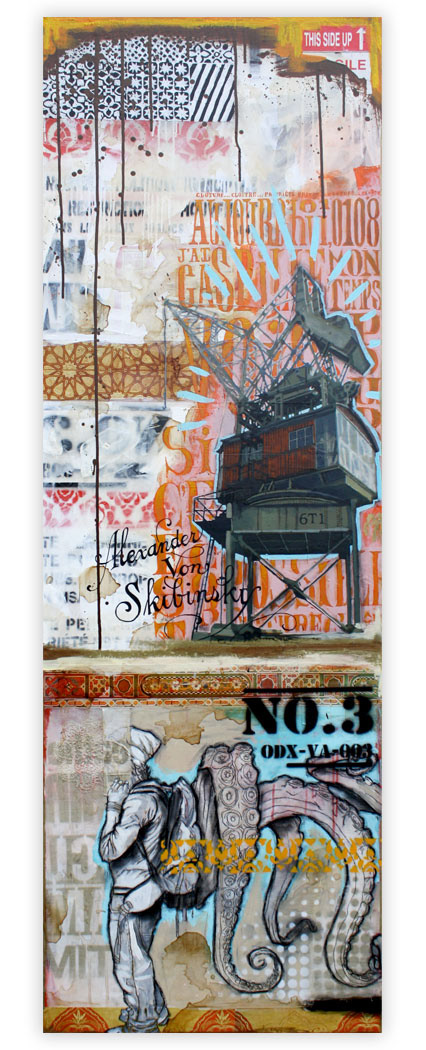
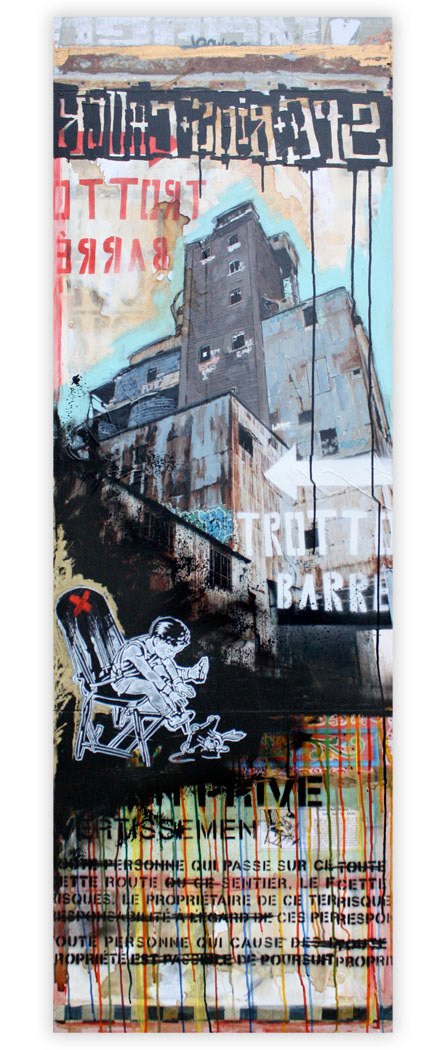
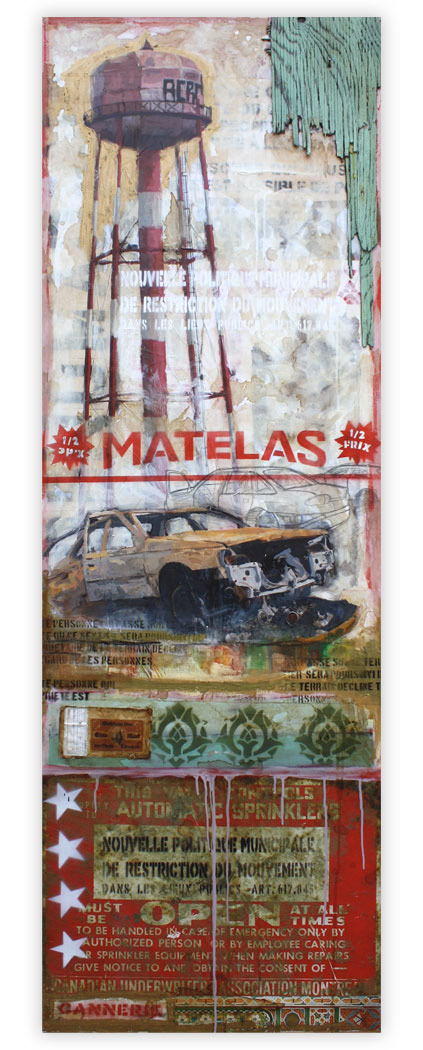
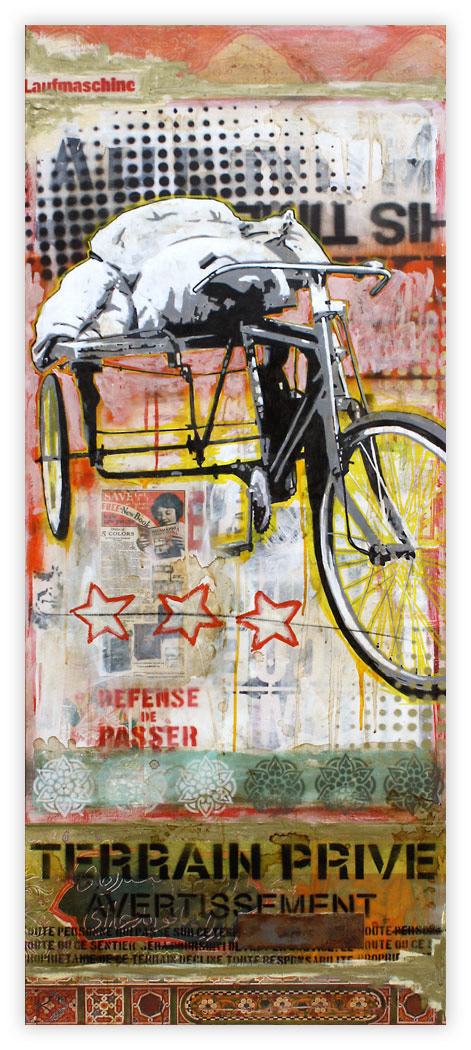
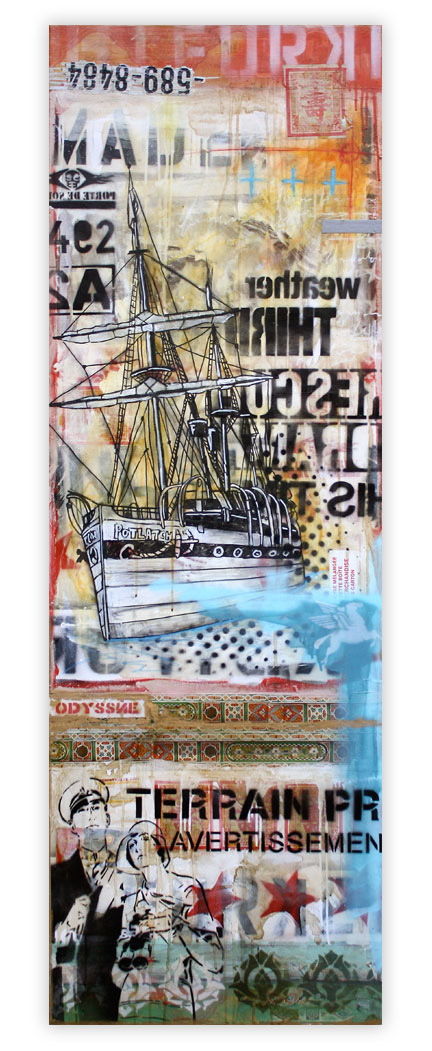
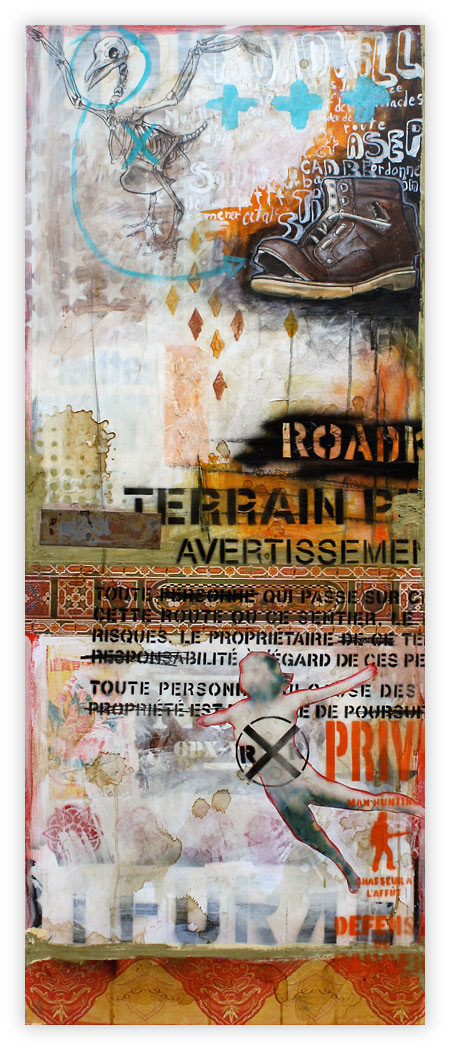
+ + + + + + + + + + + + + + + +